An Madayaw INCLUSIVITY
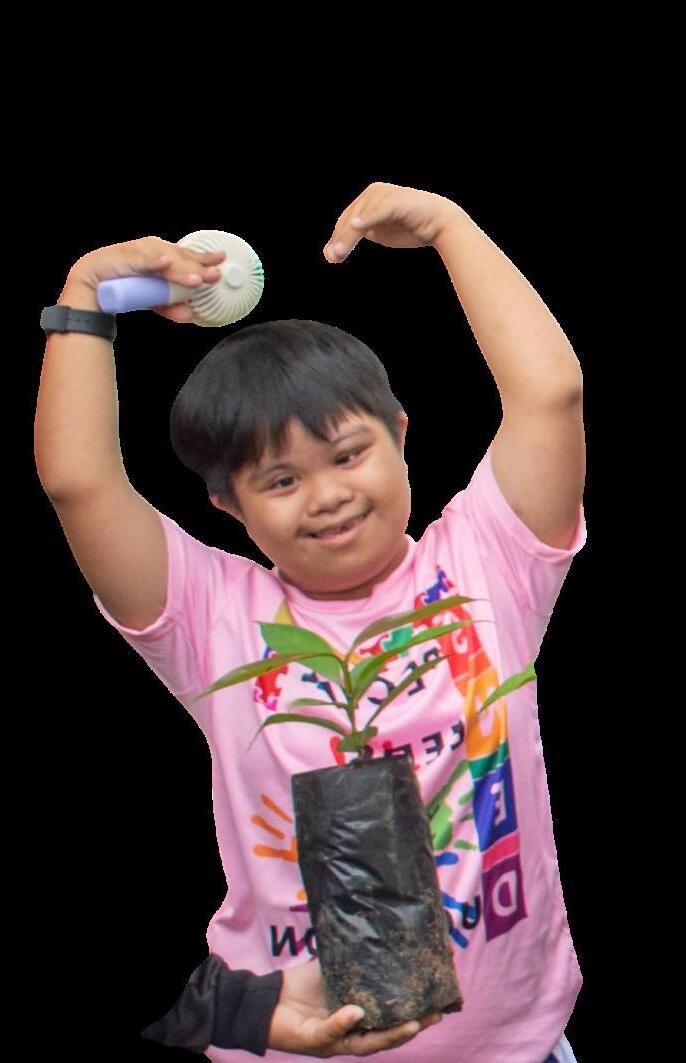


The Official Newsletter Pubication of Surigao del Sur issue no. 1 | july 2025

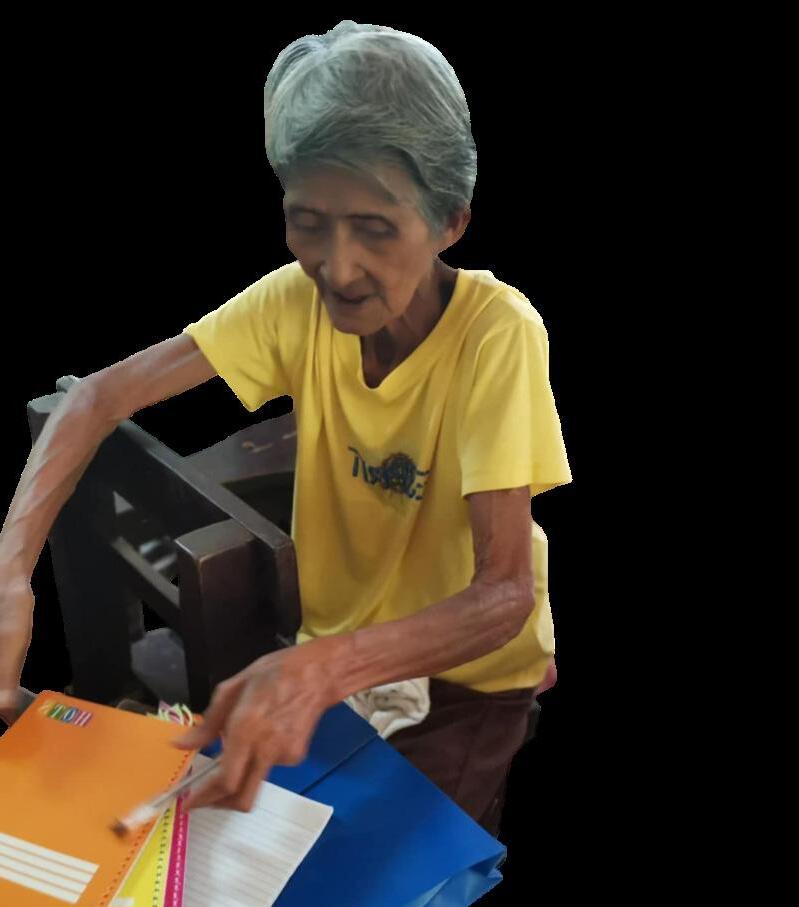
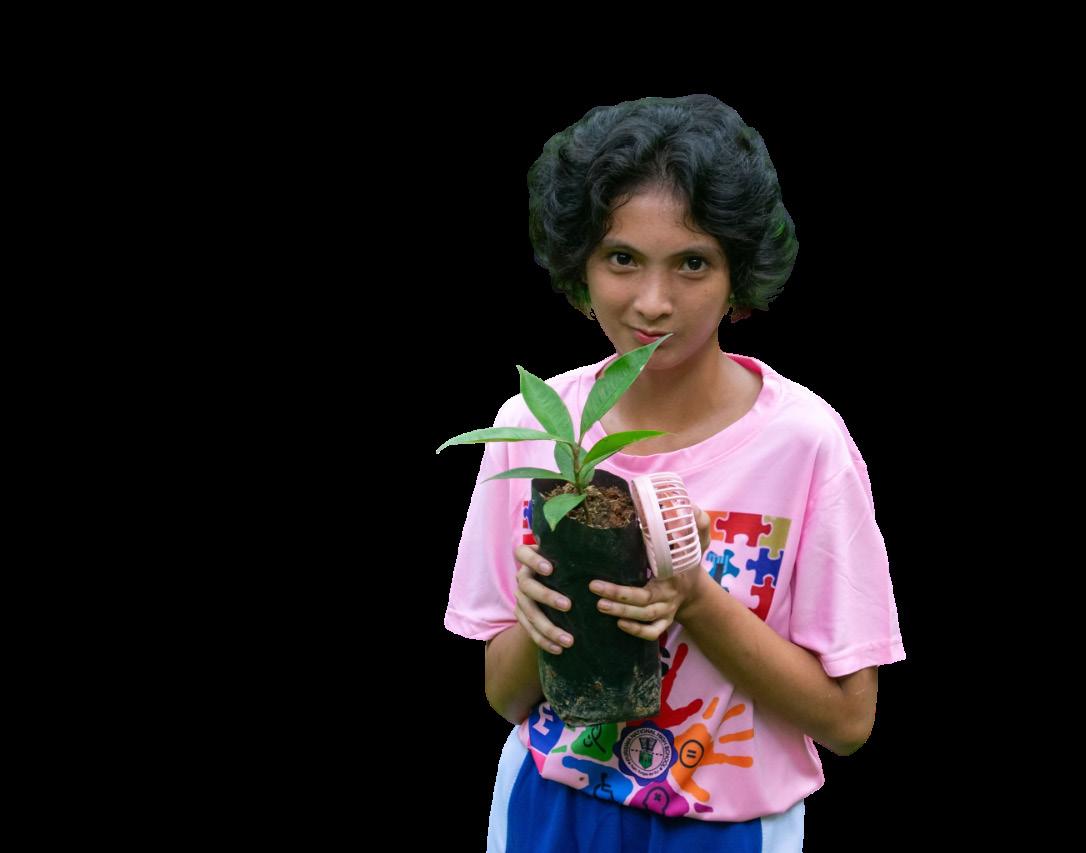




Fivie S. Galdiano Principal
I
Maurillo Avila Integrated School
San Agustin District

Special Needs Education (SNED) refers to the educational framework tailored to support learners who had experienced long term long-term physical, mental, intellectual, behavioral, or sensory difficulty and disabilities. These learners require specialized approaches in instruction, materials, and assessment. However, in many schools, only a few educators are directly engaged with SNED programs, resulting in limited awareness and support from the broader teaching community.
From the recently concluded summer program, it was observed that there are learners still didn’t pass the end line assessments. These learners who continued to fall behind academically were identified to be having emerging learning disabilities. Despite interventions, their performance remained low. This observation signals an urgent need to reassess how we design and deliver learning experiences for them.
One of the most pressing issues in SNED is aligning content and pedagogy to meet the cognitive and developmental levels of learners with disabilities. Most curricula are designed with the average learner in mind, unintentionally marginalizing those who need tailored instruction.
Standard learning materials are often text-heavy, abstract, or rigidly structured, making comprehension difficult for learners with disabilities.
Republic Act No. 11650 institutes a policy of inclusion and services for learners with disabilities in support of Inclusive Education Act which defines inclusive education as an approach is here every learner is valued, supported, and given access to equal opportunities and given access to equal opportunities and learning experiences. Through inclusive education learning materials and instructions were streamlined to the
diverse learners specifically to the learners with disability and difficulties. These includes accommodation, modification, adaptation, individualization in content, approaches and structures and strategies.
Accommodations are the appropriate arrangements made regarding the learning environment, learning materials, and other resources, curriculum format, equipment, and devices without sacrificing the learning target. These provides learners with an equal opportunity of learning without sacrificing the main content and learning competencies.
Accommodation strategies are adjustments made in the way information is presented, how students respond, the characteristics of the setting, and the timing and scheduling of instruction depending on the learner’s individual needs or difficulty. A learner with difficulty in seeing may be seated in the front desk or a learner with difficulty in reading may be provided with reading materials with larger size printed texts. Modifications are made "for learners with disabilities who are unable to comprehend all of the content”.
(Disabilities, Opportunities, Internetworking, and Technology, 2O2l, par. 21. Modifications for students

with learning difficulties involve changes made to the curriculum, instruction, or assessment to meet the individualized needs of the learners.
Unlike accommodations, which aim to provide equal access, modifications alter the contents to align with the student's capacities. Accommodations may include adjustments to the curriculum, grading criteria, or instructional methods to ensure meaningful and achievable learning outcomes for the student. For example, a learner who have difficulty in writing may be provided with a modified activity for understanding a text, that instead of writing an essay about the text the learner may be required of outlining the text.
Understanding accommodations and modifications is important for fostering equitable and inclusive learning environment, especially for students with difficulties. The knowledge on the SNED program ensure that all students, regardless of their learning differences, have access to same curriculum and can participate fully in classroom activities. These adjustments in the curriculum are designed to support learners with unique learning needs and challenges. These will allow them to overcome individual barriers due to their difficulty and fully live the best of their potentials.

Tandag City, Surigao del Sur—The Schools Division Office of Surigao del Sur successfully held its Nutrition Month celebration on Wednesday, July 30, 2025, at the Division Office grounds with the theme: “Kahandaan at Kalusugan: Building Resilience through Nutrition and Preparedness.”
The program was warmly opened by Dr. Laila F. Danaque, CESO IV, Assistant Schools Division Superintendent. She emphasized the value of unity and teamwork, stating: "This activity is a manifestation of what a family can do. Each member plays a part in its success. It’s an accomplishment we all share—a success made possible by everyone’s contribution."
Dr. Lorenzo O. Macasocol, CESO V, Schools Division Superintendent, highlighted the importance of mental health and togetherness:
"We must prioritize our emotional, social, and mental health. Today, we’re reconnecting with our mental well-being. It’s a well-deserved pause from our work. Let’s continue creating beautiful memories—as long as we can, for as long as time allows."
The day was filled with engaging activities that promoted wellness, creativity, and teamwork, including: Mental Health First Aid During Emergencies by Ms. Ivy Jane T. Cullamat, RGC Poster-Making Contest
Winner: Mr. Rino J. Padil
Slogan Contest
Winner: Architect Ricky A. Magnaye Cooking Contest
Winner: Group 2
Nutritious Food Display
Winner: Group 2
NutriTibay Jingle Contest
Winner: Group 1
Nutri-Dance Contest Winner: Group 1 The event was smoothly organized by Ms. Linny G. Mananquil, Division DRR Focal, along with Ms. Joanne H. Balan, RN, and Ms. Hypzibah L. Andoy, RN, of Health and Nutrition Unit.
The celebration served as a reminder of the powerful link between nutrition and preparedness, underscoring the division’s commitment to building resilient and healthy communities.


Romeo L. Lepardo Education Program Specialist II
Tandag City, 21 July 2025 – The Surigao del Sur Schools Division on Monday conducted its Program Implementation Review (PIR) of the Literacy Remediation Program (LRP) at Goldbar Hotel & Restaurant in Tandag City, assessing outcomes for 336 learners served during the summer sessions.
Education Program Supervisor Jonathan L. Ambel reported that 327 learners (97.3 percent) completed post-tests, yielding an average 18-percent increase in reading fluency scores. Six students remain at the Low Emerging level and will receive targeted one-on-one tutoring and specialized learning materials to address undiagnosed challenges.
The simultaneous Summer Academic and Remediation Program engaged 380 of 409 eligible students (96 percent). Mr. Ambel noted that of the ₱2,440,807 downloaded for program delivery, ₱1.6 million funded instructional materials and tutor stipends, while ₱840,807 covered transport allowances and community workshops.
Dr. Lily Ann R. Mendero, Public Schools District Supervisor of San Miguel II, said,
“We’ve seen students grow in both skill and confidence. That transformation motivates our educators to keep improving.” Small-group discussions highlighted best practices such as 100-percent assessment completion in San Agustin and Lingig I & II, a 1:3 tutor-to-learner ratio in San Miguel I, and an online tutoring model in Madrid District that sustained engagement in remote areas.
Key recommendations from the PIR include refining instructional materials with local context, expanding family-engagement workshops, and launching inclusive after-school reading clubs. “Every data point represents a child’s journey toward reading with joy,” Mr. Ambel added.
Surigao
bythenumbers
97.3% out of 336 learners completed post-tests, yielding an average of 18% increase in reading fluency scores
del Sur – In a bid to enhance ICT-driven governance and administrative efficiency, the Schools Division Office of Dinagat Islands conducted a benchmarking visit to the ICT Office of the Department of Education – Schools Division of Surigao del Sur on July 31, 2025, from 9:00 PM to 11:00 PM, held at the 3F Conference Hall, Division Office.
The visit aimed to provide insights into digital systems and workflow best practices developed by SDO Surigao del Sur to support efficient and transparent operations across division offices. Leading the delegation from SDO Dinagat Islands was Schools Division Superintendent Florence E. Almaden, CESO VI, together with Assistant Schools Division Superintendent Dr. Bryan L. Arreo, Chief Education Supervisor of CID Dr. Lope C. Papeleras, Chief Education Supervisor of SGOD Dr. Rene G. Ebol, and key administrative officers: AO V Marvin Ebueza, CPA, AO IV Charmaine Rose Gulfo (HRMO), AO IV Jorissa Santander (Budget Officer), Accountant III Mark Anthony Enocilla, CPA, Engineer III Dave Paymalan, and PDO I Richard Davide (Division Information Officer).
The activity officially opened with a prayer led by HRD Senior Education Program Specialist Erlyn G. Mangadlao, followed by the Statement of Purpose that set the direction for the visit—emphasizing collaboration, knowledge sharing, and strengthening ICT systems to improve public service delivery. In her welcome message, Administrative Officer V Shirlene E. Crabajales expressed gratitude for the opportunity to showcase the division’s digital efforts and underscored the value of unity and cross-divisional learning in advancing DepEd’s thrust for digital transformation.

One of the highlights of the evening was the system demonstration facilitated by Mr. Marvin G. Minguillan, ICT Officer, who presented the division’s custom-built systems, automated processes, focusing on user-friendly design, and ICT strategies aimed at streamlining operations, improving transparency, and delivering responsive public service.
Following the system demo, Mr. Junrey C. Bagood, AO II from the Personnel Section, introduced the division’s Online Payroll System, which drew particular interest from the visiting team. The system, developed in-house, was designed to streamline payroll generation, improve accuracy, and reduce processing time—a reflection of the division’s commitment to service innovation.
Engaged and inquisitive, the visitors exchanged ideas, asked insightful questions, and expressed appreciation for the ICT team's commitment to excellence. The benchmarking engagement not only provided a platform for system walkthroughs and demonstrations but also paved the way for stronger inter-division collaboration in support of DepEd’s digital governance agenda.
True to DepEd’s core values, this activity reflected a shared commitment to innovation, transparency, and service—bringing together minds and missions to achieve one goal: quality education for all.
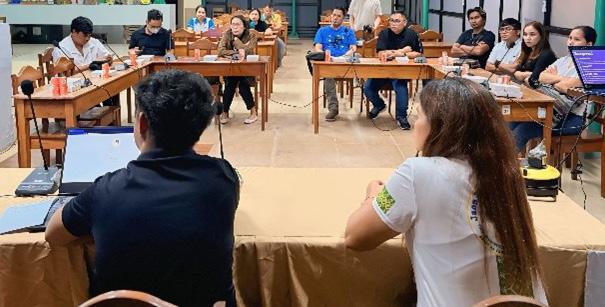



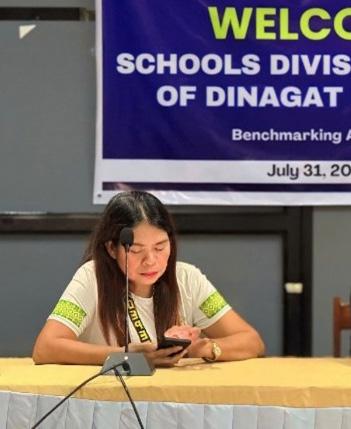
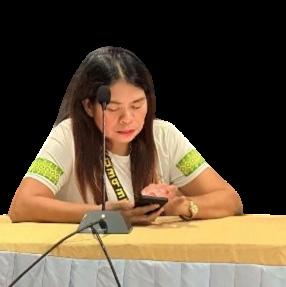


The Official Newsletter
Pubication of Surigao del Sur

Mary Ann B. Luna Special Education Teacher I Purisima National High School Tago 1 District

In the renowned military treatise
The Art of War by Sun Tzu, it is emphasized that one must first understand the enemy before engaging in battle. This timeless principle underscores the importance of deep insight and strategic awareness, suggesting that true success lies not in brute force but in thoughtful preparation and knowledge of one’s adversary.
Lianga, Surigao del Sur—Thirteen Persons
Deprived of Liberty (PDLs) at Lianga District Jail proved that second chances can begin with education, after they successfully passed the Alternative Learning System (ALS) Accreditation and Equivalency (A&E) Exam with a 100% passing rate.
Among the graduates, 4 completed the elementary level as graduates, while 9 earned their Junior High School (JHS) as completer with their certificates, making this year’s ALS program in the jail facility a resounding success.
The milestone was celebrated in a simple yet meaningful graduation ceremony inside the jail, attended by DepEd ALS teachers, BJMP personnel, local officials, and the proud PDL learners. The event was filled with emotion and hope as graduates received their certificates—symbols of hard work, growth, and the will to change.
Education Program Supervisor Minerva M. Dapar, led the confirmation of graduates, officially recognizing 4 Elementary graduates (3 male, 1 female) and 9 Junior High School completers (8 males, 1 female)—a total of 13 graduates who proved that it’s never too late to learn and rise again.
"They may be deprived of liberty, but they are not—and should never be—deprived of their right to learn," said Hon. Ricky J. Sayawan, SP Member District 2 of Surigao del Sur.
“This 100% pass rate shows that rehabilitation is real when we empower them with knowledge and hope
Hon. Amado "Boy" Layno, Municipal of Lianga, emphasized
The ALS program, implemented by the DepEd Lianga District in partnership with the Bureau of Jail Management and Penology (BJMP), has been instrumental in giving PDLs the opportunity to complete their basic education through flexible and inclusive learning strategies.
ALS mobile teachers regularly visited the jail, conducting sessions on literacy, numeracy,
communication, values education, and life skills. Despite the challenges of studying in a detention facility, the 13 PDLs showed commendable discipline, determination, and eagerness to succeed.
"When I entered jail, I thought my life was over.". But ALS gave me a reason to believe again— now I dream of finishing senior high school and becoming someone, my family can be proud of."
PDL Jolina Andales, JHS Completer said.
Education officials and BJMP personnel emphasized that the ALS program is a key part of the correctional system's goal to rehabilitate and reintegrate PDLs back into society as responsible, productive citizens.
The success of the 13 PDLs in Lianga District Jail sends a powerful message: no wall is high enough to block the power of education.
This remarkable achievement proves that while freedom may be taken, the power to learn and transform remains within reach. With education as their guide, these PDLs now carry the tools to rebuild their lives and become beacons of change in their communities.
San Miguel, Surigao del Sur | July 14, 2025 — The “Learner Rights and Protection on Wheels” campaign successfully made its way to Bitaugan Elementary School, one of the last mile schools in the region, as part of its ongoing outreach to promote child welfare and protection.
The program highlighted a vital discussion on DepEd Order No. 55, s. 2013—the Implementing Rules and Regulations (IRR) of the Anti-Bullying Act of 2013. Led by Child Protection Coordinator Ms. Grace Christy Mae Lumanta, the session empowered learners with the knowledge of their rights and the protocols set in place to protect them from bullying and other forms of abuse.
The event didn’t just educate—it also brought joy and support. Every learner at Bitaugan Elementary received meals, toys, snacks, and school supplies, reinforcing the program’s mission to care for the holistic well-being of children.
Key personnel behind the outreach success:
Dr. Lily-Ann R. Mendero-Public Schools District Supervisor of San Miguel II District
Melchor O. Catcha, Education Program Specialist of Social Mobilization Unit
Andrew P. LumantaAdministrative Officer of San Miguel I
Aldrine C. De Jesus-Project Development Officer of San Miguel
Analyn S. Fuentes-Administrative Assistant
Rosemarie Ann Trugello-
Administrative Officer of San Miguel II
Gersan T. Mordeno-District Nurse
Sharon Rose S. DiolaDistrict Nurse Their commitment and coordination ensured the event’s meaningful impact on the community, making it a remarkable example of service delivery and advocacy in action. This outreach reinforces the Department of Education’s vision of building safer schools and promoting inclusive learning environments, especially in far-flung areas.





with Regional Health Outreach in Surigao del Sur
Lianga, Surigao del Sur. In celebration of the 51st Nutrition Month, the Department of Education (DepEd) CARAGA Region launched a vibrant three-day Regional Medical, Dental, Nursing, and Nutrition Outreach from June 22 to 24, 2025.
grade 2-3 Tooth brushing drills
grade 4-5 Proper handwashing techniques
grade 6 Delousing and scalp hygiene awareness
all levels
The initiative was held under the Oplan sa Kalusugan sa DepEd (OKD) program, guided by the national theme: “Sa PPAN: Sama-sama sa Nutrisyong Sapat Para sa Lahat,” with the compelling sub-theme: “Food at Nutrition Security, Maging Priority! Sapat na Pagkain, Karapatan Natin!”
The outreach extended its services to Ban-as Elementary School, Simowao Elementary School of Living Tradition, and Han-ayan Elementary School of Living Tradition, offering learners vital care and education in a nurturing, community-centered setting.
The activity was warmly welcomed by Lianga District in Charge Dr. Noemi Aireen M. Abraham and Municipal Mayor Hon. Amado V. Layno. Regional Medical Officer IV Dr. Jumer C. Carlon inspired participants with his message, while Dr. Ren Rena Gascon Tul-id laid the program’s
The outreach was spearheaded by the Schools Division of Surigao del Sur through the Health and Nutrition Unit of the Schools Governance and Operations Division, under the leadership of Medical Officer III, Dr. Ray Benito J. Moreno. He was joined by a committed team of registered nurses—Joesie Magsalay, Flyn Lyn Lala, Rhoderick Jay Villarina, Merlinda Balili, Hypzibah Andoy, and Joanne Balan—whose collective efforts reached hundreds of students.
Learners actively participated in grade-specific health sessions:
Grades 2–3: Tooth brushing drills
Grades 4–5: Proper handwashing techniques

Medical assessments were conducted by Dr. Carlon, Dr. Rochelle Paeste, Dr. France Penny Cutao, and Dr. Jean Therese Mandap. Dental services including extraction, fillings, and silver diamine treatments were handled by Dr. Anna Liza Lerio and team, with dental aides assisting.
Advocacy on adolescent reproductive health, mental wellness, and learner protection was led by Dr. Edmund D. Mendoza and supported by a team of educators including Rena Grace Tul-id, Lee Anne Mae Alicaya, Charlestone Otaza, Leah Ellen Yaoyao, and Shiela Abenido.
The initiative reinforced the importance of accessible

issue no. 1 | july 2025
The Official Newsletter
Pubication of Surigao
del Sur


Fluellen L. Cos, PhD Chief Education Supervisor (CID)
Mary Ann B. Luna
Special Education Teacher I
Purisima National High School
Tago 1 District

In the renowned military treatise The Art of War by Sun Tzu, it is emphasized that one must first understand the enemy before engaging in battle. This timeless principle underscores the importance of deep insight and strategic awareness, suggesting that true success lies not in brute force but in thoughtful preparation and knowledge of one’s adversary.
Feat. Nanay Isabel
Salva a 75-year old JHS
Completer and 2024 A&E
Passer of ALS Cagwait District
Jeru Salem O. Cuarteron Teacher III
In the educational context, a school leader. such as a principal, must develop a comprehensive understanding of the school’s entire ecosystem. This includes not only internal and external stakeholders but also the physical infrastructure and the more subtle aspects of the school’s culture and working environment. By grasping these interconnected elements, the leader becomes better equipped to navigate challenges, align institutional efforts with broader educational goals, and avoid being overwhelmed by the complex demands of the role. Insight fosters preparedness, and preparedness ensures effective, resilient leadership.
Sun Tzu’s idea of “knowing the enemy” can be interpreted in education as understanding the root causes of learning barriers. The “enemy” is not a person, but rather conditions such as ignorance, misinformation, inequity, or socio-emotional difficulties that hinder student development. Educators who understand these obstacles are more capable of responding with empathy, strategy, and effectiveness. This approach calls for both self-awareness and system-awareness, fostering a
reflective and intentional mode of leadership that emphasizes support over blame and strategy over reaction.
In the context of Surigao del Sur, an educational leader must cultivate a data-informed understanding of the unique profiles of teachers, learners, and stakeholders to effectively manage the intricacies of the school environment. Those who remain disengaged or lack organizational agility are more vulnerable to stress, burnout, and attrition. To lead with impact, it is essential to master both managerial competencies and strategic program implementation. Only through proactive, responsive leadership can the “enemies” of inefficiency, stagnation, and resistance to change be addressed and overcome.
Research reinforces this need for adaptive leadership. School heads who practice data-driven planning, program oversight, and contextualized decision-making are more likely to foster resilience and long-term progress in their institutions. Leadership that is attuned to both internal dynamics and external pressures paves the way for sustainable educational transformation (Hallinger &
When a Child Can’t Read, a Nation Bleeds
Let’s be honest—when we think about education, we often imagine medals, top scorers, and proud graduation photos. But what we don’t always see are the quiet struggles inside our classrooms: the child staring at a sentence for minutes, trying to make sense of it… and failing.
The Department of Education has launched the Academic Recovery and Accessible Learning (ARAL) Program, a nationwide effort to support learners who are falling behind in Reading, Math, and Science. It's a response to a problem that has been growing for years, worsened by the pandemic, and painfully confirmed by global assessments where Filipino learners ranked near the bottom.
Here in Surigao del Sur, the truth hitseven harder. Based on assessments at the start of this school year, only 17 out of every 100 learners in Grades 1 to 3 can read at their grade level. The rest—more than 70%—are still struggling. Some are just beginning to read; others are far behind.
And in Grade 3 English, the numbers remain troubling. Only 1 out of 4 learners can read and understand texts meant for their grade. Many can read the words but don’t grasp the meaning. It’s like building a house on sand—without strong reading skills, everything else eventually collapses. Even with targeted interventions like the Literacy Remediation Program during summer, some learners continue to struggle. In one Grade 3 English intervention, eight pupils remainedat the lowest emerging reading level despite several weeks of focused support. Teachers have raised concerns about possible learning disabilities—not because these children lack motivation or potential, but because they require specialized interventions that go beyond what most schools are currently equipped to offer. These learners are not failing—they simply need specialized support and a different kind of help, one that is tailored to their unique learning needs. at the lowest emerging reading level despite several
Heck, 2011; Day & Sammons, 2016).
Moreover, amid the surge of technologicaldemands and the increasing blurring of professional and personal boundaries, school leaders must adopt agile and focused strategies. Intentional action, adaptability, and clarity of purpose are crucial to avoiding distractions that may derail school-wide and departmental objectives. By embracing thoughtful leadership practices, school heads can sustain momentum toward continuous improvement and ensure meaningful outcomes for both learners and the larger educational community.
Effective school leadership, therefore, requires more than authority, it demands strategic wisdom anchored in self-knowledge, contextual understanding, and foresight.
As Sun Tzu reminds us, “If you know the enemy and know yourself, you need not fear the result of a hundred battles,” a powerful truth that empowers every school leader to lead with clarity, courage, and lasting impact.
charisma f. suico mary jane dela pena mark lloyd q. tinambacan bernard p. mahumot althea greta may p. tolentino jose marie T. sintos advisers
q. pia
merjorie dalagan,
phd, cese consultants
cid chief fuellen l. cos, phd sgod chief carlos tian chow c. correos asds laila f. danaque, edd
Jonathan L. Ambel, EPS
weeks of focused support. Teachers have raised concerns about possible learning disabilities—not because these children lack motivation or potential, but because they require specialized interventions that go beyond what most schools are currently equipped to offer. These learners are not failing—they simply need specialized support and a different kind of help, one that is tailored to their unique learning needs. So what does this mean for us?
It means we can’t keep teaching the same way and expect better results. We need to act now. We need stronger reading programs, better teacher training, and deeper support from parents and communities. This isn’t justa school problem—it’s a problem for all of us.
Because when a child can’t read, they struggle in every subject. They grow up with fewer opportunities.
And in the long run, it’s the country that suffers. The ARAL Program is a good step, but launching it isn’t enough.

We must ensure it reaches the learners who truly need it. We must look closely at what’s happening inside classrooms, especially in the early grades. We must ask hard questions: Do we have enough reading materials?
Are teachers trained to teach beginning readers?
Are parents involved?
Are children healthy enough to learn? And most importantly—do we care enough to change the system, not just for better numbers, but for real learning?
These are our children. Our future doctors, farmers, leaders, and teachers. They deserve more than reports and reminders. They deserve to read. They deserve to understand. They deserve hope.
Let’s give them that.

In a world where education is often seen as a pursuit of the young, one woman stood tall, undeterred by time, challenges, or expectations. Nanay Isabel Salva, a 75-year-old learner from Cagwait District, has broken barriers and redefined what it means to persevere. As a Junior High School Completer and a 2024 passer of the Alternative Learning System (ALS) Accreditation and Equivalency (A&E) Program, her journey is a living testament that it’s never too late to dream, to learn, and to succeed.
Hailing from the quiet town of Cagwait in Surigao del Sur, Nanay Isabel’s life was shaped by simplicity, sacrifice, and resilience. Like many in her generation, formal education had to take a backseat to the responsibilities of family and livelihood. But her passion for learning never faded—it simply waited patiently for the right moment to bloom.
That moment came decades later, when she took the courageous step to enroll in ALS under the Department of Education’s Cagwait District. Braving physical limitations, the demands of daily life, and a world that often overlooks the elderly, she studied with determination alongside learners much younger than her.
ALS teachers and co-learners describe Nanay Isabel as “a beacon of hope”—quiet, humble, but full of resolve. She became more than just a student; she became an inspiration. Her presence in the classroom reminded everyone that education is not a race, but a personal journey that unfolds at its own pace.
“
On graduation day, as she donned her white toga and cap, a blue sash reading “COMPLETER” proudly pinned to her chest, and recieved her diploma Nanay Isabel symbolized something far greater than academic success. She symbolized the unbreakable human spirit—a spirit that refuses to surrender to time, age, or adversity. Her achievement shines a light on the power of the Alternative Learning System, a program designed not just to educate but to transform lives. Nanay Isabel’s story urges us to support lifelong learning and to remove the stigma of “too late.”
For as long as the heart is willing, the mind can follow.
To Nanay Isabel Salva— your courage, persistence, and love for learning have written a new chapter in the book of inspiration. You have not only completed junior high school—you have completed a legacy.

“ a beacon of hope

To Nanay Isabel Salva your courage, persistence, and love for learning have written a new chapter in the book of inspiration. You have not only completed junior high school—you have completed a legacy.
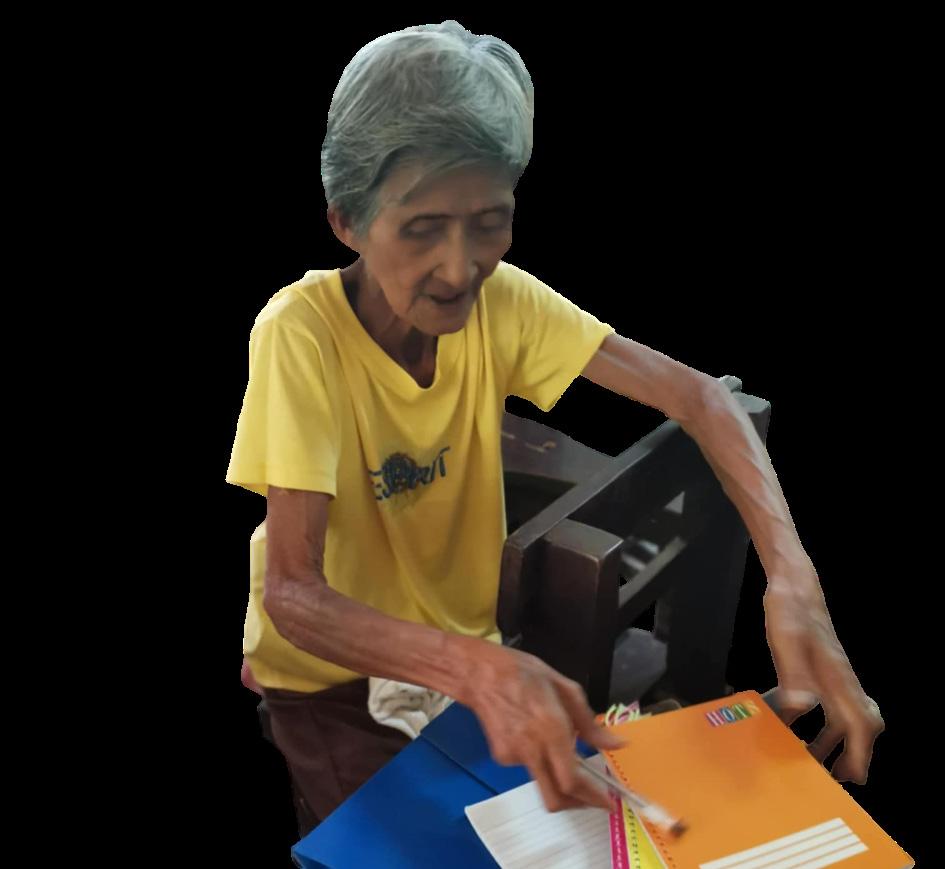






On Day One, voices filled the air, With hopes and dreams we chose to share. Hands held high, we took a stand, For every child in every land.
Day Two came with seeds we sowed, Of love and care along the road. Parents, teachers, side by side, With nature’s gift, we filled with pride.
Day Three lit up the stage with art, From dancing feet to honest heart. Paintings bloomed with vibrant hue— Proof that talents shine bright too.
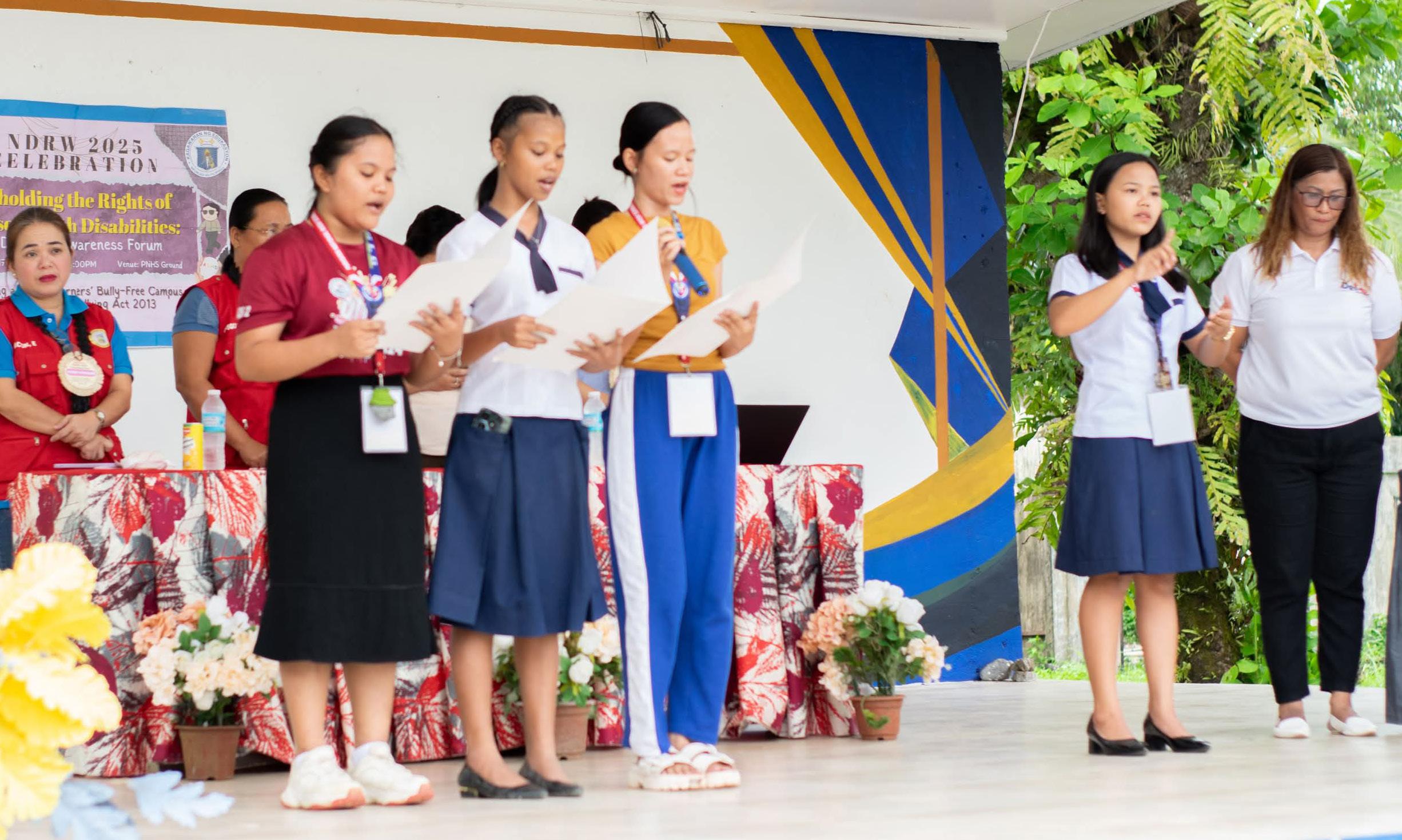
Day Four brought games that made us cheer, With laughter loud from far and near. In every team and every round, New bonds of friendship could be found.
Day Five, we raised our voice once more, To pledge inclusion at the core. That every child, in every way, Deserves to learn, to laugh, to play.
So here’s to hearts that stood so tall, To voices loud, both big and small. NDRW, a shining light— A week of rights, a world so bright!






